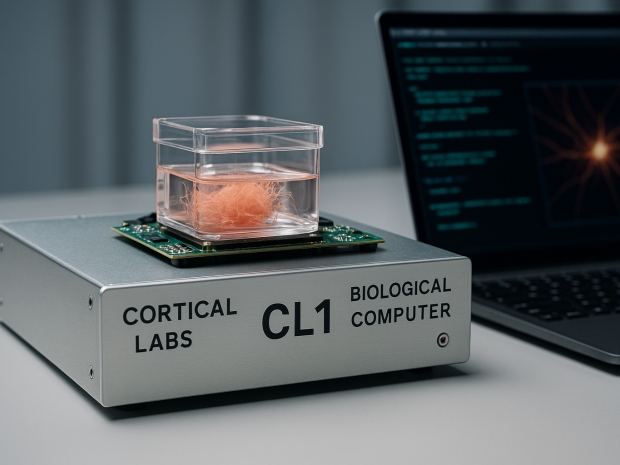The CL1 will not run Chrysalis and it sort of thinks. The platform lets researchers feed electrical signals into a dish of human brain cells and then watch as they learn, adapt and fire back responses in real time. It launched in March and the first 115 units ship this summer.
Boffins can also rent one through Cortical’s “wetware-as-a-service” for $300 a week. If you're feeling flush, you can knock down the price to $20,000 a unit by grabbing a 30-unit server rack.
Each CL1 features human neurons reprogrammed from adult skin or blood samples. They stay alive for up to six months thanks to a life-support system that handles nutrients, temperature, waste and fluids. Meanwhile, the neurons get on with their job of processing stimuli and reacting in sub-millisecond loops.
Cortical Labs chief scientific officer Brett Kagan said, “We can do something similar by inputting small electrical pulses representing bits of information, and then reading their responses. The CL1 does this in real time using simple code abstracted through multiple interacting layers of firmware and hardware.”
That compact wetware package also sips power. A full rack draws just 850 to 1,000 watts, a fraction of what you’d need to keep a typical AI server setup buzzing.
University College London theoretical neuroscientist Karl Friston called it the first “commercially available biomimetic computer, the ultimate in neuromorphic computing that uses real neurons.” But he added the real value is for neuroscience, not computing. “It’s an enabling technology that allows scientists to perform experiments on a little synthetic brain,” he said.
Friston believes the CL1 could revolutionise how we test treatments and understand brain function. “In short, experimentalists now have at hand a little ‘brain in a vat,’ something philosophers have been dreaming about for decades,” he said.


